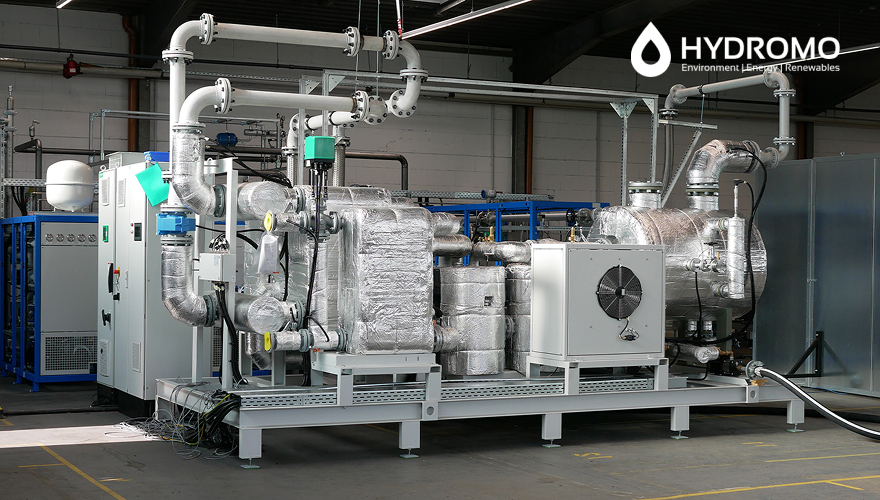
When individuals mention that they are going to make buildings greener, it sometimes comes out as a sustainability buzzword. Behind the jargon, however, there are actual technologies that are changing the production and consumption of energy. Heat pumps are one of the best.
The Importance of Water Heat Pumps in Commercial Spaces.
Water heat pumps are not only efficient, but they are transforming. They may produce approximately 5 units of heat per unit of electricity that they take, with a coefficient of performance (COP) greater than 5. Compare that to conventional boilers that max out at 90% efficiency, and the difference is striking.
In office complexes, hospitals, hotels, and shopping centres, where heating, cooling, and hot water demand are constant, water heat pumps deliver not just energy savings but also lower carbon emissions through the use of natural refrigerants like ammonia or CO₂. This makes them a smart financial and environmental choice.
Intelligent Operations with Optimization.
Water heat pumps are capable of much more when they are combined with building energy management systems (BEMS). These systems monitor real-time electricity, water, and HVAC performance, alerting to inefficiencies such as cooling or heating loads when not needed.
Why does this matter? Because even small inefficiencies add up quickly across large campuses or high-rise buildings. Real-time monitoring and optimization help facility managers cut utility costs by 1–3% in short intervals, a significant win in the commercial sector.
Smart Buildings and Campuses.
Emerging commercial trends are looking to water heat pumps to be integrated into the holistic smart building design:
Smart controls will make sure heating and cooling systems are only operated when in demand.
Efficient HVAC layouts reduce demand while maintaining comfort.
Renewable and solar integration is done on-site; this makes the heating and cooling cleaner and more stable.
The result? Easy rooms with reduced power consumption, lower running costs, and improved sustainability practices are a significant benefit to businesses that want to appeal to green-minded tenants or customers.
Policy and Market Drivers
Government policies like the Indian Energy Efficiency Codes on buildings and encouragement of green certifications are compelling commercial developers to consider the use of technology like water heat pumps. With their flexibility, they make it easier for businesses to hit sustainability targets and qualify for LEED, IGBC, or GRIHA ratings.
Community-Level Applications
Beyond large commercial towers, smaller setups like schools, retail outlets, and community centers also benefit:
Rooftop solar paired with water heat pumps reduces dependence on the grid.
District-level systems lower energy use across multiple buildings in semi-urban developments.
Awareness campaigns make efficient heating and cooling solutions the new normal.
The Bottom Line
Water heat pumps are not a technology of tomorrow but are present today. In the case of commercial buildings, they imply:
Lower CO₂ emissions
Reduced energy costs
More comfort and dependability.
Better green certification and brand image.
The real takeaway? Green in business premises does not imply the loss of performance. Smart, clean, and profitable operations: With the help of a water heat pump, businesses can be smarter, cleaner, and more profitable.
With cities decarbonizing, commercial real estate will find itself basing its future on the water heat pump technology.
